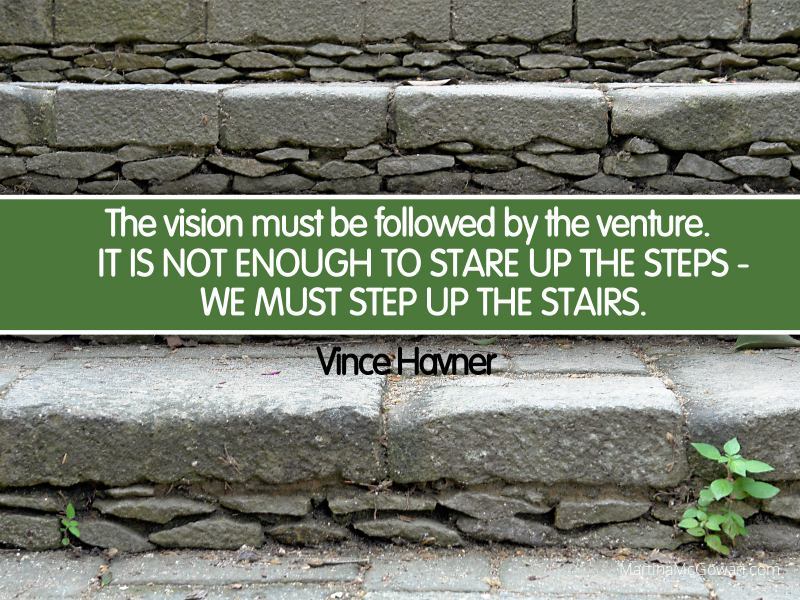“Self-talk reflects
your innermost feelings.”
Dr. Asa Don Brown
We all talk to ourselves, carrying on a continuous internal dialogue. Self-talk can be helpful or hurtful.
How Negative Self-talk Can Affect You
Do you ever hear yourself saying things like, “Urgh, I’m late again,” or “It would be just like me to mess up this presentation?”
Wouldn’t you rather hear something like, “I did a fantastic job on that project,” or “My clothes are fitting better now that I’m exercising a little more?”
Do you ever find yourself talking yourself out of being excited and hopeful when you begin to feel good about yourself?
Do you often start something new feeling confident in yourself and your abilities, and then drop to zero confidence when that old inner dialogue kicks in?
This negative thinking is something many of us struggle with, but there is a better way. We can combat negative thoughts with positive self-talk instead of letting those automatic negative thought processes rule our lives.
Using positive self-talk and positive thinking every day can help us live a more positive life. Sometimes it’s easy to be overcome by negative thinking and negative experiences. So, it is important that we create more positive dialogues with ourselves to get through the tough times. And we all have rough patches in life. Positive self-talk and improved inner dialogue can help us reach new heights, to address many of the obstacles and barriers that may stand in our way.
Understanding Positive Self Talk
Positive self-talk is the practice of responding to the negative thoughts that creep into our minds throughout the day. You know the thoughts: the ones that have us thinking, “I can’t” instead of “I can,” or “It is too hard for me” instead of “I can do this.”
When we replace such negativity with positive thoughts, we can bring about astounding changes in the way we feel about ourselves.
Positive Self-talk and You
It takes practice to be able to make the switch from negative self-talk to positive, especially if we’ve always experienced the negative. It may even be hard for us to remember a time when a negative dialogue wasn’t playing in the background of our lives. But we are here now, and we can take a different path by choosing to put time and effort into responding to the negativity.
If we want to lead more positive and fulfilling lives, we must have a more positive mindset. To think positively, we must replace the negative thought processes that are already running through our minds with something better.
“Life is too short to waste any amount of time on wondering what other people think about you.
In the first place, if they had better things going on in their lives, they wouldn’t have the time to sit around and talk about you.
What’s important to me is not others’ opinions of me, but what’s important to me is my opinion of myself.”
C. JoyBell C.
Conquering the Inner Beast
Mastering the art of self-talk means we speak truthfully and positively to ourselves. When you become more proficient at this, you will feel empowered and encouraged. Consequently, your days will be happier, you will work harder to achieve your goals, and you’ll feel better about yourself.
The power of your self-talk is all-encompassing. Our self-talk influences what we believe about ourselves and how we’ll behave in the future.
Try these techniques to help you master this life-affirming art:
1. Keep it real. When we are honest, we will feel more comfortable with ourselves. If you know you could have done better on a work project, acknowledge it to yourself. We can be honest with ourselves without being cruel.
2. Avoid self-criticism. Although being honest with ourselves is important, we need to do it in a helpful and informative way. These are the same things that we would expect from someone criticizing us. Instead of saying, “I messed up,” acknowledge your decision to perform to a higher standard. Tell yourself how you’ll respond and improve in the future.
3. Be positive. Talking to ourselves in negative or self-deprecating ways is self-sabotage. If we hear the same things repeatedly, we start to believe them. Make sure what you say to yourself is positive.
4. Focus on your strengths. As we listen to our inner voice throughout the day, we’ll notice that we inadvertently make unkind and untrue comments about ourselves. Saying “Why did I do that? That was dumb,” isn’t very conducive to moving forward and doing our best. Instead, if we recognize our strengths in a situation, we feel moved to push ahead and tackle the next task with more enthusiasm. We might tell ourselves, “At least I thought the situation through and believed I was doing the right thing. Next time, I’ll do things differently.”
5. Be nice to yourself. When you’re talking to yourself, are you kind? Are you careful of your feelings? We are careful with everyone else’s. Do we care less about ourselves? We can learn to forgive ourselves. When we show a caring attitude toward ourselves, we unleash the ability to perform better.
Some Ways You Can Improve Your Current Internal Conversation
Instead of saying: “Nothing I do ever turns out right,” try saying, “I am focusing on how I can succeed when I do this particular task.”
Rather than stopping at thinking: “I should have gotten up early to exercise this morning,” say, “Now I’m going to do my exercise bike” or, “I’ll walk this evening right after work.”
If you were going to say, “There’s nothing really special about me,” change that nonsense into, “Everybody has strong points and mine are…” Make a list!
Tape it to your mirror or your computer! Can’t think of anything? Here’s some help: Identifying Good Traits Worksheet. Free to download.
To ensure that your self-talk is empowering and encouraging, you have to practice. I suggest standing tall in front of your mirror. Put a face on that self-talk, your face!!
You have the power to create the life you desire by taking control of your self-talk which impacts your self-esteem, self-worth, and self-confidence!
I have added a couple of free worksheets to help you with this issue:
You know the drill- Share, comment, and subscribe!!
Chat soon…
Martina




